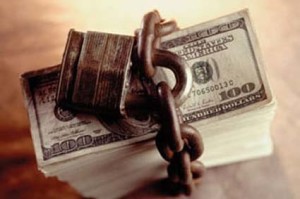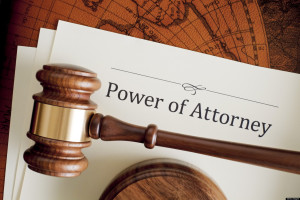According to Newsweek, the average American wastes 55 minutes a day, or 12 days a year, looking for things they own but can’t find.
Each of us has been in that situation. The last time we saw our favorite book, it was sitting on that shelf, but it’s not there now. It got misplaced during a cleaning or moved to another location. You’ll eventually find it when you least expect it.
Let’s put a different spin on the situation. Let’s say, instead of your favorite sci-fi novel or rom-com DVD, the item you’re looking for is your marriage license. Stop and think for a moment. Do you know where to look for your marriage license? How about other essential documents, like your wife’s Social Security card?
If you answer yes, good for you. You’re doing better than the majority of Americans.
Now what about your parents and their paperwork? Can you answer yes or no for them? The answer is probably no, but that’s not a good or bad thing. Adult children of aging parents are often caught without the essential documents their parents need in an emergency situation.
Knowing where the official records are located as well as having copies of important financial, legal and health documents can save you countless hours of time spent tracking down records.
If you think you’re going to be overwhelmed with a mountain of paperwork, don’t. Paperwork could be broken down into two categories: vital and non-vital documents. The vital paperwork includes items you may need if Dad is admitted to the hospital in the middle of the night; photo ID, list of medications, etc… The non-vital documents are just as important, but aren’t needed for the middle-of-the-night ER visit.
Here are the vital documents you need to keep readily available:
- Birth certificate
- Driver’s license
- Social Security card
- List of current medications
- Medicare / Medicaid / insurance coverage card
- Legal documents: Power of Attorney, health care proxy, living will, advance directives.
- Marriage license
Photocopies of these documents will do the job. Only hand over originals, such as the Social Security card, if requested; the originals may get lost and it could take time and effort to get replacements.
It’s not a bad idea to keep these copies in a ‘grab and go’ bag or folder/binder, somewhere the documents are easily accessible for those unexpected middle-of-the-night runs to the ER. Plus, having them in one convenient place will be easier when it comes time to update.
What about non-vital documents, such as credit card statements, stocks and bonds, items you don’t need on a regular basis? Do you know where those documents are kept? Like the personal documents, it’s a good idea if you did know where these were stored.
This is paperwork you won’t need for a trip to the ER. But let’s say your mother is going to be admitted to a rehab facility or a nursing home, and applying for Medicaid is a strong possibility, then you will need this paperwork to at least get an idea of what Mom’s finances are.
The non-vital documents include:
- A revocable living trust
- Any letter of instruction listing personal property not disposed of by will and wishes for distribution
- Receipts and appraisals for valuables
- Trust, banking and loan information
- Tax returns
- Military record
- Mortgage records
- Insurance policies
- Stocks, bonds, real estate and other investments
- Burial plots and desired funeral arrangements.
A mountain of documents are now in front of you, and you have no clue where or how to store them. Storing important paperwork can be a challenge, but getting organized can save you time, eliminate clutter and give you peace of mind.
Break it down to two ways: old school or high tech.
If you’re old school and like to have easy access to paperwork, consider investing in a quality fire safe. Portable safes of all shapes, sizes and features are available online and at retail stores. If you want something larger or more permanent, most locksmiths can install a hidden safe in your closet, floorboards, or attic. Make sure the safe is air- and watertight and can withstand extensive fire, water or structural damage.
You can also open a safe-deposit box at a bank by yourself or with others. Larger boxes can accommodate your important documents, as well as irreplaceable photos, jewelry and sentimental keepsakes.
For the more technological savvy person, you may also want to scan documents or take photos with your smartphone and store them on a secure online server. Housing your scanned documents in a cloud environment provides easy 24/7 access via your smartphone, tablet or computer. Many storage services offer limited space for free.
With a little effort you can reap long-term benefits and save time by organizing your important paper documents not only for yourself, but your loved ones as well.
Elder Advisers® is not a law firm or a substitute for an attorney. We offer financial advice. We can work closely with your existing tax and legal advisors or introduce you to those we routinely work with. Nothing in this newsletter is intended as tax advice, a solicitation for insurance, or legal advice, and is merely provided as general information, and should not be relied upon for anyone’s specific or unique circumstances. Some content of this newsletter may have been developed by third party sources not affiliated with Elder Advisers®. If you would like to discuss your situation, we are delighted to help. CALL (800) 763-7930.




